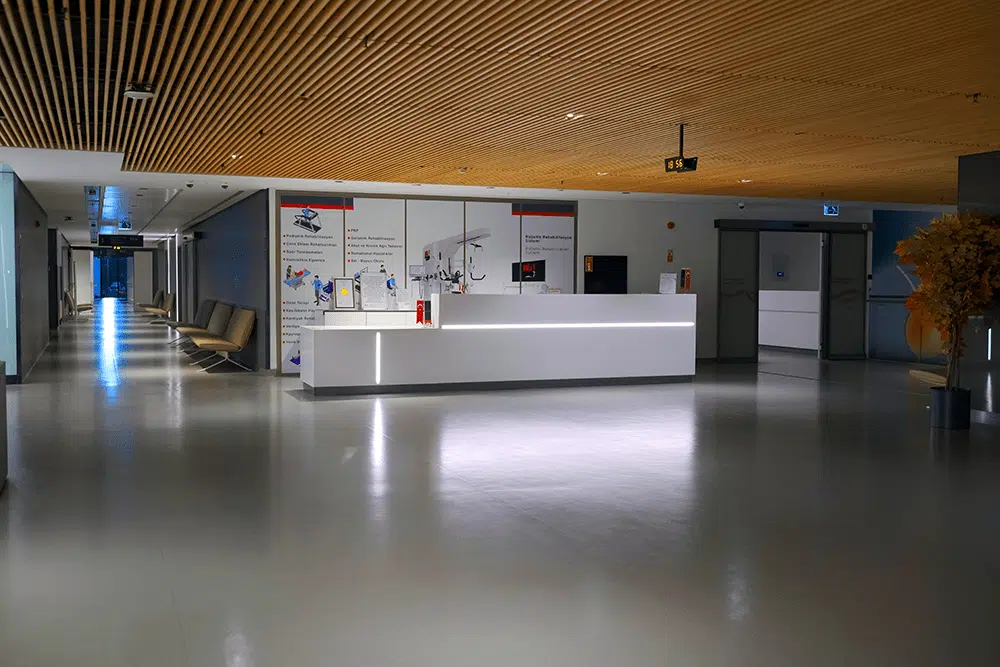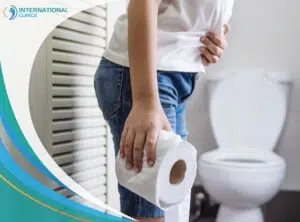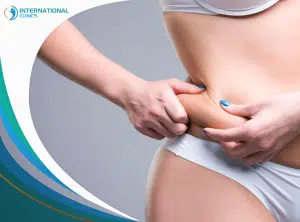During the initial days following a gastric sleeve, one may experience some of the toughest symptoms and moments on their recovery journey. Stomach spasms after gastric sleeve are among the common symptoms that raise concerns among patients.
Gastric sleeve surgery often comes with different unpleasant postoperative sensations, one of which is stomach spasms or abdominal cramping, which can be rather distressing and worrisome for many patients.
To ensure a smooth recovery, Turkish surgeons often provide their patients with more information on how to deal with such spasms after having gastric sleeve in Turkey. If you plan to have the surgery, it’s better to be well-informed about what lies ahead to avoid any unexpected twists and turns.
What Are Stomach Spasms After Gastric Sleeve?

Stomach spasms refer to feeling uneasy and mild pain in the stomach. Stomach spasms could occur along with other symptoms, such as nausea and diarrhea. Surgeons consider these spasms a perfectly normal reaction as your stomach has undergone significant surgery and the new smaller stomach is in a healing period.
In other words, these spasms are a regular occurrence and nothing to worry about. Your surgeon will take measures to ensure that your stomach muscles don’t face tension. However, clinical studies indicated that stomach or abdominal pain after bariatric procedures can be a sign of both benign and life-threatening entities.
The spasms usually occur within the first five to seven days following the procedure and may happen along with indigestion. While it may seem like a good idea to treat the discomfort with some juice or soft drinks, it’s actually a bad idea and could make the situation worse.
Learn about: Gastric sleeve cost in Turkey
Causes Of Stomach Spasms After Gastric Sleeve
People develop stomach spasms due to different reasons and causes after gastric sleeve surgery in Turkey:
Gastroesophageal Reflux Disease (GERD)
This is the primary trigger for stomach spasms in normal people. However, this problem can also arise from peptic ulcers, celiac disease, food intolerance, and even food poisoning.
Indigestion
Indigestion is a plausible consequence of reducing the size of the stomach as well as the alteration of the passage of food through the digestive canal. Indeed, indigestion is a common symptom on its own after the surgery.
Pressure on the Stomach
Stomach spasms can be brought on by pressure on the newly formed stomach sleeve as the body recovers. The gastric sleeve can result in a high level of pressure on the stomach pouch. As the pouch begins to shrink, it may exert pressure against the stomach, resulting in contractions.
Although those with a larger amount of abdominal fat tend to be more susceptible to this problem, anyone who has undergone the procedure can have it too. Stomach spasms can sometimes result from deep, poorly healed scars on the surgical site.
Infection
It’s not uncommon for infections to occur after gastric sleeve, particularly if proper post-operative care was neglected. Stomach spasms could be a sign of infection. In such instances, antibiotics are typically prescribed to clear up the infection, although a longer course may be necessary.
Weak Immune System
A weakened immune system can lead to stomach spasms later in the recovery phase as your body struggles to fully heal from the gastric sleeve. Thankfully, there are many ways to strengthen and support and functions of your immune system.
Medications
Some medications can cause discomfort and stomach spasms. Furthermore, studies have confirmed that both the effectiveness and observation of medication are likely to be affected after bariatric surgery. To avoid stopping taking your medications prematurely, it’s recommended to consult with your doctor beforehand as this could potentially result in further complications.
Treatment of Stomach Spasms After Gastric Sleeve

Although stomach spasms are typically brief, they can be quite uncomfortable and disrupt the recovery process. If you’re encountering persistent stomach spasms following obesity surgery in Turkey, you certainly need to speak with your surgeon. They may advise you to take your liquids slowly during the first week after the procedure. In any case, the treatment of stomach spasms after gastric sleeve may involve the following:
- Medications: To keep the stomach spasms at bay, your doctor may prescribe certain medications. The most common treatment for stomach spasms following gastric sleeve surgery is the use of anesthetics or pain medication.
- Supplements: There are individuals who prefer to use herbal remedies as an alternative. Ginger is known to alleviate abdominal discomfort and spasms. Other options include aloe vera and pepper, which enhances blood circulation and nutrient absorption.
- Surgery: Your surgeon will thoroughly examine your condition and provide you with the most optimal solution to avoid exacerbating the situation. Your surgeon may suggest a surgical intervention to extract any extra stomach tissue that may have developed and caused the spasms in the first place.
Dangerous Stomach Spasms After Gastric Sleeve
There are various worrying symptoms that may arise in the abdominal region following bariatric procedures, and these can be a reason for frustration or even regret. If you are a gastric sleeve patient and you experience any of the following symptoms, it’s important that you seek immediate medical consultation from your surgeon:
- A progressively worsening pain in the abdomen
- Unusual and severe pain in the left shoulder region
- An overwhelming and persistent vomiting
- A severe case of gastroesophageal reflux (GERD) heartburn
- Inability to ingest or retain liquids
Other Troublesome Symptoms After Gastric Sleeve
Besides stomach spasms, there are other sources of discomfort after the surgery, including:
- Pain: Gastric sleeve is a profound procedure that requires considerable healing time. Despite the minimally invasive nature of the procedure, patients can experience a sense of discomfort or pain, but they can manage it with prescribed oral pain medications. Rest assured, there is no need to be worried about taking these they ensure a smooth and successful recovery.
- Tiredness: The recovery period after the surgery can be quite heavy for the body as it adapts to reduced calorie intake and altered hunger levels. Remember, your body is already working hard to heal from the surgery. Hence, it’s normal to feel extra fatigued and lethargic. To combat this feeling, take it easy in the first week and prioritize rest.
- Constipation & Diarrhea: As the new physiology of your digestive system is building up, you may encounter some disruption in the way your bowels respond. Constipation due to pain medications is a fairly common occurrence. If constipation persists for 2-3 days, you can consider drinking magnesium citrate, which may cause diarrhea but will relieve constipation.
Diarrhea after gastric sleeve is more likely to occur when you’re on a liquid diet for an extended period of time. Certain protein supplements and shakes may further exacerbate the situation. As you progress from liquids to solids, diarrhea should improve.
The Bottom Line
Stomach spasms and discomfort after gastric sleeve can arise from different factors and causes, but there are many ways to deal with the problem and soothe the pain and discomfort. If the spasms become very painful, however, you need to contact your doctor as soon as possible.
International Clinics in Turkey provides gastric sleeve surgery and other forms of bariatric procedure to international patients along with follow-up sessions and consultations. You can contact us right away using the Contact Us button below.

Frequently Asked Questions
Is It Normal to Have Stomach Spasms After Gastric Sleeve?
It’s normal to have mild stomach spasms after gastric sleeve. Taking pain medications can help resolve the spasms. However, if the spasms are painful or intolerable, you need to urgently speak with your doctor to determine the underlying causes.
How Do I Know If Something Is Wrong with My Gastric Sleeve?
If there is something wrong with your gastric sleeve, you may start noticing a range of alarming symptoms, such as fever, anxiety, tachycardia, respiratory distress, abdominal discomfort, nausea, or vomiting. You must immediately inform your physician if you encounter any of these symptoms.
What Are the Hardest Days After Gastric Sleeve?
The hardest days after gastric sleeve are those in the first week, specifically between the third and sixth days following the procedure. During this time. Most patients feel discomfort and mild pain.
Are Muscle Spasms Normal After Abdominal Surgery?
Muscle spasms are normal after abdominal surgery. In fact, it’s quite common to experience a certain level of muscle spasms after any surgery. The pain could result from wound healing.
What Are the Signs of Malnutrition After Gastric Sleeve?
The signs of malnutrition after gastric sleeve include a number of physical symptoms, such as a decrease in muscle mass, swelling, hunger, and noticeable changes in the health of your skin and nails.
How Long Is Phase 1 After Gastric Sleeve?
Phase 1 after gastric sleeve refers to the first 24 to 48 hours after the procedure. During this time, you must avoid consuming dairy products like milk, as well as caffeine and sugary beverages. Instead, you can drink beverages that are non-carbonated and free of caffeine and sugar liquids such as water and decaffeinated tea.
Do Stomach Spasms Go Away?
Stomach spasms can go away on their own, at least in the majority of cases. However, if they cause critical discomfort or become very painful, it’s possible that there may be an underlying medical concern that requires attention.
Read more:
Gastric Sleeve Surgery Abroad: Best Destinations & Packages
Obesity Surgery Cost in Turkey






